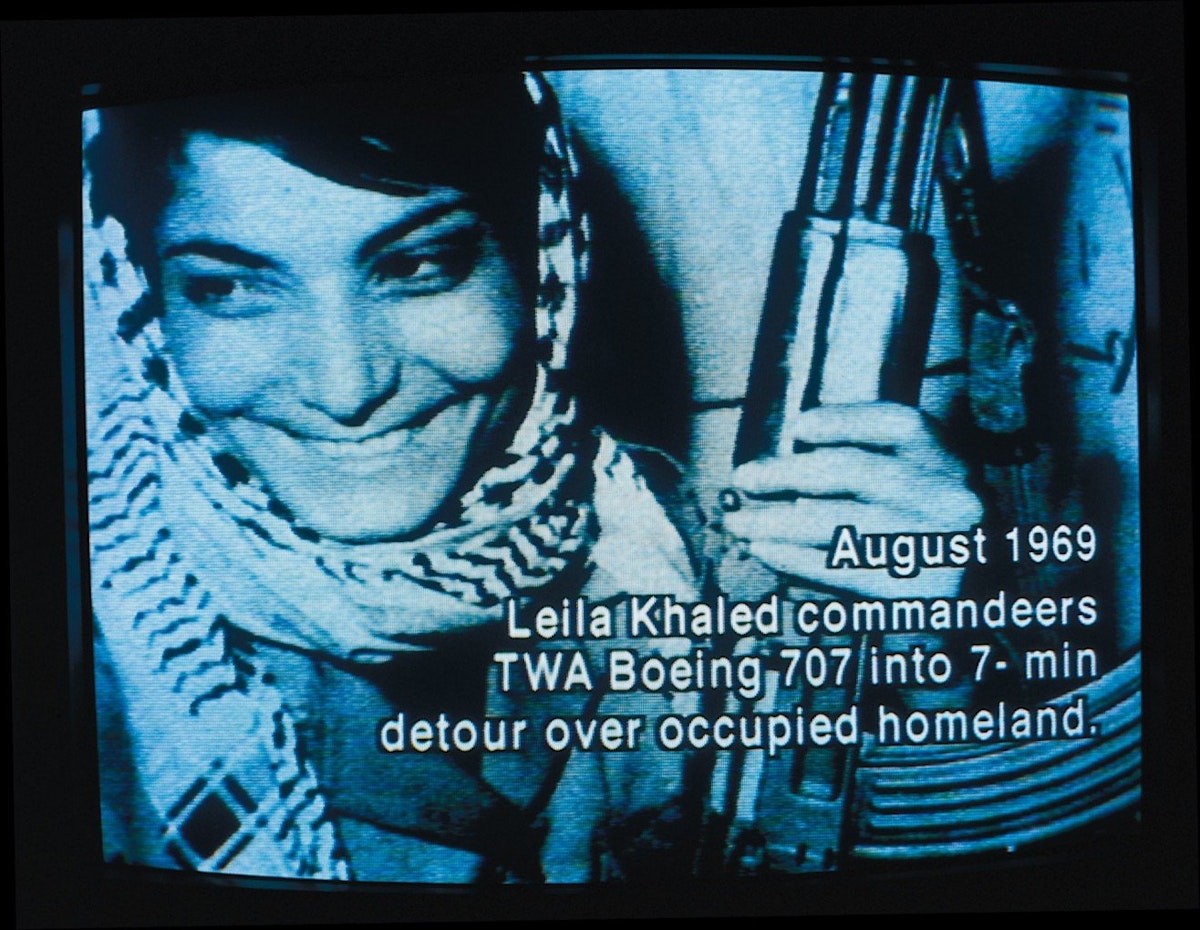“The terrorist spectacle accommodates a dirtier game underneath” - Johan Grimonprez.
On his 24 hour trip to Wellington, New Zealand we caught up Belgian artist Johan Grimonprez to discuss his films Blue Orchids (2017) and dial H-I-S-T-O-R-Y (1997), showing at City Gallery Wellington as part of the exhibition Iconography Of Revolt.
Made 20 years apart, Grimonprez describes both films as part of the timeline of 9/11, and the construction of the 'war on terror'. He discusses the historical role of the media before and after the Cold War, and the digital commons as a newly contested space. With host Mark Williams.
See Johan Grimonprez's website for video, texts and more.
Catalogue Notes:
0:30: MW: Introduction
1:40: JG: 9/11 as linking event between dial H-I-S-T-O-R-Y and Blue Orchids; dial H-I-S-T-O-R-Y draws connection between the radical left and the figure of the rebel, until a shift in 1975-76, where the rebel is displaced by the ‘terrorist’. Blue Orchids picks up where that figure disappears.
4:00 JG: Collapse of the Soviet Union and the United States’ subsequent need to create an imaginary ‘other’, beginning with figures of the alien and Saddam Hussein -sustaining industry
5:25 JG: On Blue Orchids’ juxtaposition of a journalist ‘who lost his job exposing lies’ against that of an arms dealer who ‘makes his money selling lies’
6:55 JG: Blue Orchids arising fromt the production of Shadow Worlds (2016), based on book by Andrew Feinstein.
8:44 MW: Blue Orchids as humanity’s shared inability to sustain a lie
10:18 JG: “I always think this whole thing about post-truth is a big an oxymoron…”
10:40 JG: On Wittgenstein, jokes and contradictions bringing us closer to the ‘truth’
11:37 JG: “what we see staged in dial H-I-S-T-O-R-Y is not necessarily truth today…“Truth is historical”. On Leila Khaled rewriting history/rewriting truth
13:11 JG: Discusses The Weather Underground, and violence as a strategy to respond to violence. Quotes Frantz Fanon – “Maybe non-violence is the privilege of the powerful?”
14:10 MW: Does dial H-I-S-T-O-R-Y include new images or only archival?
14:36: JG: On inclusion of home movies shot in airport, development of airport security.
15:12 On complicity of the media in framing political protest as ‘terrorism’. Discusses Ronald Reagan, the Iran hostage affair, US foreign policy in Central America. ‘Terrorism’ versus the idea of ‘state-sponsored intervention’. “The terrorist spectacle accommodates a dirtier game underneath”
18:36 MW: On progressive desensitization of audiences to moving images within 100 years, from early cinema (L'Arrivée d'un train en gare de La Ciotat (1896) to dial H-I-S-T-O-R-Y (1998). Is there hope for moving images as a political force today?
19:00 JG: On role of technology in disseminating images today and “so-called participatory (platforms)”. “They disguise themselves under the commons as participatory democracy…but it’s a masquerade”.
20:20 JG: In the Internet as military technology, on peer-to-peer networks as hope for participatory democracy.
21:00 JG: on Shadow World (2016) “I’m still traumatised myself…the worst of what humanity is capable of… we can keep on critiquing the world but where do we take it from there?”
21:47 MW: How can you feel like the structures of the art world, the cinema or the Internet serve the distribution of your own work?
22:10 JG: Discusses potential of social media and internet as a distribution platform. “I would love that Shadow World would be dropped on social media…to go viral”. Discusses the complexities of funding and support. Discusses move to make works on his website availablefor free, including published material - “It creates an audience but it creates other possibilities… (it) creates more dialogue”.
24:18 JG: On piracy. “Who are the big thieves? Why would a corporation own images that actually are collective memory?” On recycling of dial H-I-S-T-O-R-Y into other works - “I think I like that actually”.
25:48 JG: On ethics of pirating artists’ material “…the artist should be protected”. Discusses example of Matthias Müller.
26:54 JG: Argues for participatory budgeting “If 50% of our taxes go to war we could say we don’t agree with that (and not pay 50%)”.

-circuit.jpg)
,-part-of-the-wastelands-(2024).-installation-view,-auckland-art-gallery-toi-o-tamaki,-2025.-image-courtesy-of-the-artist.jpg)